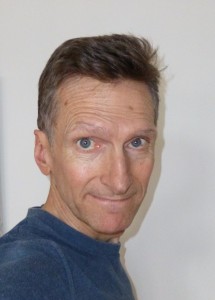18 February 2016
Maskirovka
In Russia, the season for masks isn’t over yet.
by Neil Tidmarsh
 The Russian leadership has made some fairly confusing statements recently, but the most confusing of all must be prime minister Dmitri Medvedev’s comments this week on Saudi Arabia’s pledge to send war planes and ground troops to help in the fight against Isis in Syria.
The Russian leadership has made some fairly confusing statements recently, but the most confusing of all must be prime minister Dmitri Medvedev’s comments this week on Saudi Arabia’s pledge to send war planes and ground troops to help in the fight against Isis in Syria.
He apparently warned against Saudi Arabia and any other Gulf states taking part in US or NATO led initiatives against Isis; they “must think hard about this – do they want permanent war?” he said, according to the German daily ‘Handelsblatt’. “All sides must be forced to the negotiating table instead of sparking a new world war.”
You may well scratch your head. “But doesn’t Russia itself claim to be part of the international fight against Isis, so shouldn’t it be welcoming Saudi Arabia’s offer to help?” you ask, puzzled and bewildered. “And isn’t it Russia who is putting the negotiating table out of bounds by continuing airstrikes in Syria – including strikes against civilian targets – and by failing to persuade its protégé Assad to lift sieges and let humanitarian aid through to the starving inhabitants? And how could more help against the relatively small enemy of every world power spark a world war? And isn’t Russian intervention in Syria the biggest spark yet to fall near the tinderbox of potential world war?”
Of course, just because prime minister Medvedev’s comments are confusing doesn’t necessarily mean that he himself is confused. Perhaps it suits him that we are confused. Perhaps it suits him that the two separate conflicts in Syria – the civil war between the Assad regime and its opponents, and the international war against Isis – are confused one with the other; then Russia could project the illusion that the Syrian crisis is a single struggle, between the regime on one side and Isis and everyone else on the other – so everyone else must be terrorists like Isis, too. And of course the confusion must help to diplomatically mask what must be the Kremlin’s real concern; that once they are in Syria, those Gulf planes and troops – Sunni forces – might turn against the Shia forces of Assad and his ally Iran.
Another comment by prime minister Medvedev this week may also have had you scratching your head. He complained about NATO and the West continually describing Russia as a threat to world peace, and warned that the strain of it is pushing the world “into a new Cold War”.
Yet again you’re bewildered. So it isn’t Russia’s military interventions in Ukraine and the Crimea and Syria which is pushing the world into a new cold war, but the West’s complaints about such intervention? So Russia, actively engaged in armed conflict outside its own territory, isn’t responsible for the plummeting diplomatic temperature? So the West is to blame, after all, even though it has largely and wisely kept the muzzles on its dogs of war? You’re puzzled and confused…
Throughout the last century, the Russian military worked on the tactic of ‘maskirovka’ (literally ‘masked’) until it became a highly-developed and sophisticated weapon. It is the art of confusing, misleading and deceiving the enemy. It uses the tools of camouflage, dummies, decoys, disguise and smokescreens on the battlefield, and denial and disinformation off it. In this century, analysts have highlighted its use in the annexation of Crimea and the conflict in Ukraine: soldiers in uniforms from which all insignia have been removed; military vehicles with no military markings; the political denial of any involvement.
Incidentally, similar ‘masked’ tactics are, of course, also used by terrorists the world over, from suicide bombers hiding behind burkas and niqabs to gunmen in civilian clothes melting back into the crowd. Did the Turkish prime minister Ahmet Davutoglu have that in mind this week when he accused Russia of behaving like a ‘terrorist organisation’?
More to the point, could the doctrine of ‘maskirovka’ have spread in Russia beyond the military sphere? Could it have spread into the Russian political and diplomatic spheres as well, using the same tactics of denial and deception to mislead and confuse? Is the prime minister himself a practitioner of it?
Perhaps someone ought to tell the Russian leadership that the season for masks and disguises – Carnival – ended last week with Shrove Tuesday. Lent is now upon us, and Lent is the season for the serious and sincere contemplation of our sins, and for penitence. But wait – is the Orthodox Easter later than ours this year? Yes – much later – it isn’t until Sunday 1st May. So the Orthodox Lent – known as the Great Lent – doesn’t start until 14 March. So Russia hasn’t yet left the irresponsibility of Carnival for the responsibility of Lent. So perhaps there’s hope yet. Although another three or four weeks is a long time for the suffering people of Syria to wait for a change of heart in the Kremlin.
Please click here if you would like a weekly email on publication of the Shaw Sheet

